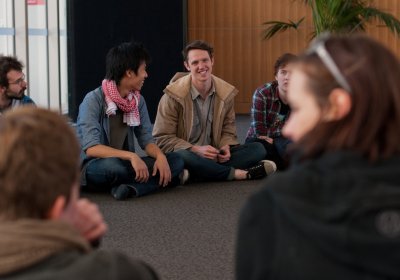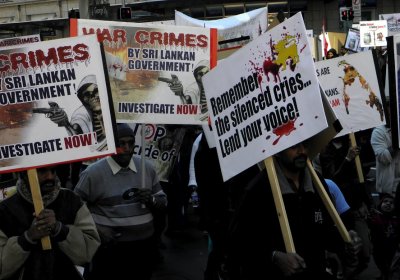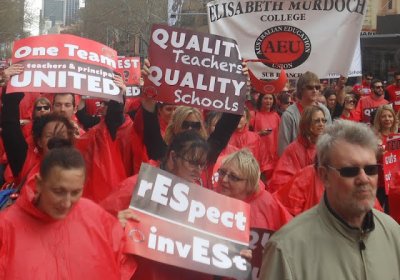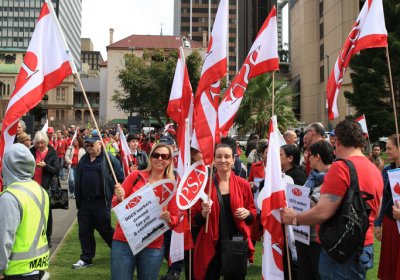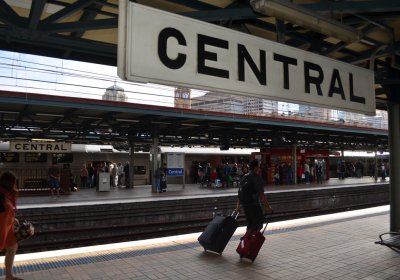Over the recent Labour Day weekend in Canberra, students from around the country came together at the EduFactory conference to discuss the current situation of Australian universities, to swap strategies and understanding and to foster links between campaigns and collectives.
The conference was the result of dedicated work by grassroots organisers and included current and former, undergraduate and post-graduate students from a wide range of political persuasions.
Australia
The Stop the Intervention Collective Sydney (STICS) released the statement below on October 1.
* * *
STICS has renewed calls for the national income management system to be dismantled, following the release of a damning report by the NT Coordinator General for Remote Indigenous Services (NTCGRIS).
The report, which documents extreme waste on spending on bureaucracy, comes as the $120 million national expansion of income management is badly stalling, with few referrals and work bans on the scheme in NSW.
The Sri Lankan civil war ended in 2009 and in the war’s aftermath there has been a plethora of serious human rights abuses perpetrated by the Sri Lankan government. Some of these abuses include abductions, torture and the murder of journalists and civilians, including women and children.
We are facing a climate emergency. The impacts of increasing extreme weather events are already being felt around the world and the unprecedented record Arctic sea ice melt highlights the urgent need to transition away from fossil fuels.
Shamefully, it is in this context that new coal and gas projects continue to be approved, and the federal government plans to give $4.5 billion in free carbon permits to the country’s dirtiest coal-fired power stations. This money should be put into building large-scale renewable energy, like solar thermal power for Port Augusta.
One day after the huge stop work and rally of Australian Education Union (AEU) members on September 5, Mary Bluett, the Victorian AEU’s branch president, announced she was retiring. Her husband AEU branch secretary Brian Henderson, also announced his retirement. Bluett has been an education union official for 31 years.
The Victorian AEU is a 51,000 member strong union. Teachers have come increasingly under attack in recent years, but they, like nurses, still have a lot of public support.
An election in the NSW Public Service Association (PSA) will be held in October to determine who leads the 42,000-strong union for the next four years.
Membership of the PSA consists of public servants employed by the NSW government. The current ALP-aligned leadership team is being challenged by a group of rank-and-file members and delegates known as the Progressive PSA (PPSA).
Australianmap.net is a new online educational resource which brings together information, photos and videos about more than 50 of Australia’s nuclear sites including uranium mines and processing plants, the Lucas Heights research reactor, proposed reactor and dump sites and British nuclear weapons test sites.
About 40 concerned citizens opposed to the ongoing conflict in Afghanistan and Australia’s role in the conflict, gathered in Queenscliff on the Bellarine Peninsula, 30 kilometres from Geelong, to blockade the entrance to the Swan Island military base over September 23 to 27.
The student left has won a big victory at Curtin University, taking several key positions in the student guild elections held over September 25 to 27. Positions won include president, education vice-president, women's officer and queer officer.
The Left Action ticket ran a very political campaign, highlighting a range of student rights issues. These included opposition to the university's planned budget cuts and cuts to courses.
The university is also planning to increase parking fees, which will hit students hard.
The news of Jill Meagher's death has rightly distressed many Australians. However, much mainstream media and internet commentary have taken this as an opportunity to blame the victim for what happened to her in an effort to warn other women. This approach is both despicable and wrong.
Melbourne writer Clementine Ford addressed this in her Daily Life piece, "Can we please stop the victim blaming?"
Sixteen Aboriginal adults in the remote New South Wales town of Wilcannia are the first graduates of a groundbreaking trial literacy program that would not have been possible without the help of a tiny Caribbean nation — Cuba.
At the beginning of this year, Cuban educator Jose Chala Leblanch arrived in Wilcannia to help establish the literacy program based on the world-famous “Yes, I Can” teaching method developed by Cuba.
A document called “Sydney's Rail Future – Modernising Sydney's Trains” was released by the Barry O'Farrell NSW government in June. It plans to modernise the Sydney rail network by converting it to a "three tier" system: rapid transit, suburban and intercity.
Unfortunately, the plan is vague about the long-term future of rail expansion around Sydney. Its unstated objectives would appear to be:
- Previous page
- Page 694
- Next page
